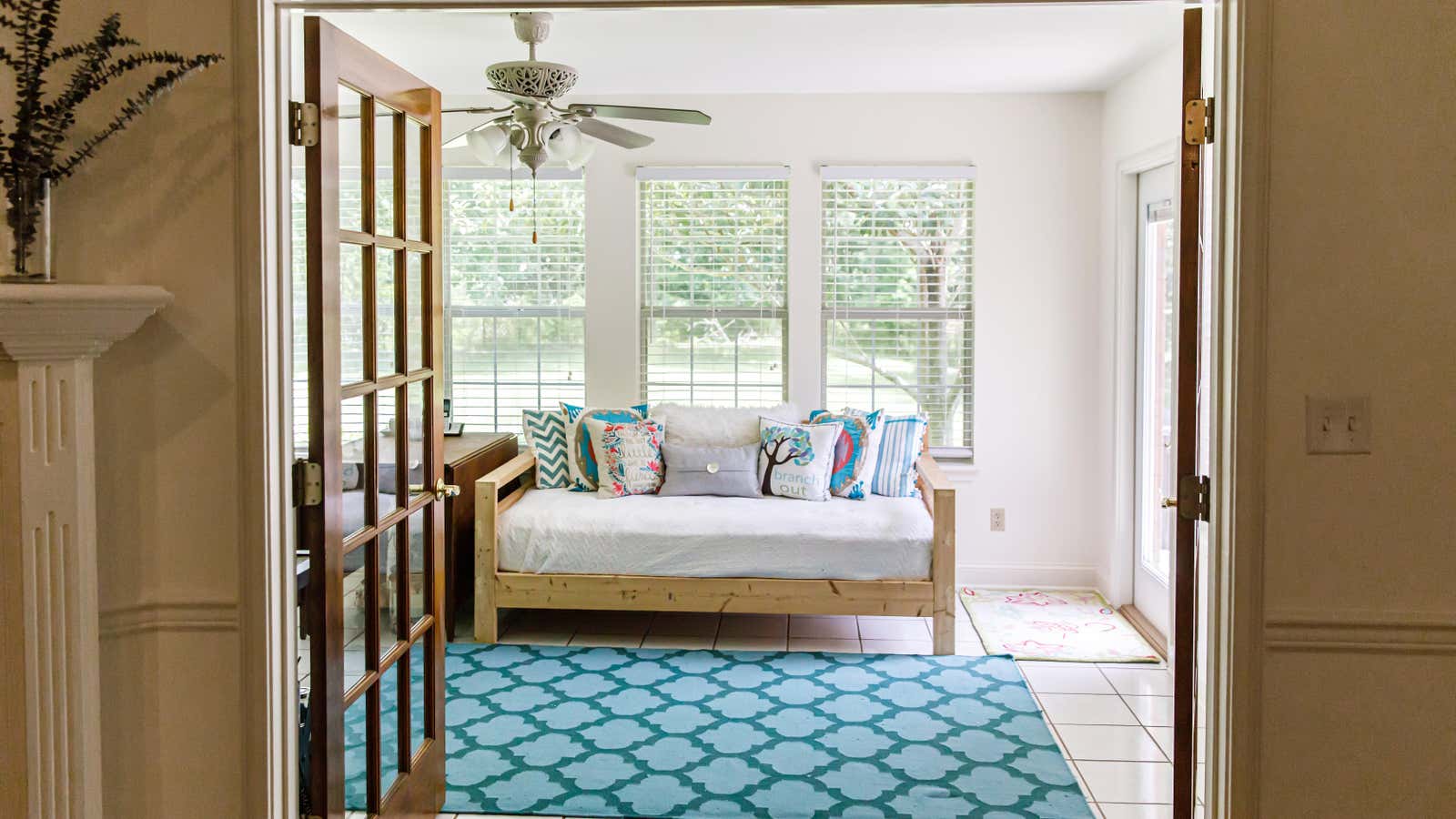The Difference Between a Bonus Room and a Bedroom (and Why It Matters)

Realtors, like any professional group, often communicate in a dense array of jargon, which is often used to hide a property’s flaws and highlight its features. This can range from using phrases like “cosy and charming” when what you mean is small and falling apart, to stretching out the word “bedroom” to include a room that barely fits a sleeping bag. However, one of the most cryptic phrases that realtors will throw at you is “bonus room”.
If you’ve ever bought a house (or watched it being done on TV ), you’ve probably heard the term and wondered what it actually means. The name, of course, sounds exciting, but in fact, everything is much less interesting.
What is a “bonus room”?
Essentially, a bonus room is a room defined by a lack of purpose. Most rooms in your house have a specific purpose: you sleep in your bedroom, bathe in your bathroom, cook in your kitchen, and so on. The bonus room has no specific purpose – it’s just an empty space. The bonus room concept gained momentum when the open-plan trend took off a few decades ago— these huge open spaces are quite noisy and there is no privacy, so having a separate space that could be used for just about anything became more important. or less necessary. As lofts, basements, and ready-made rooms above the garage ( FROG ) became more common, the number of bonus rooms grew.
So why is this a “bonus” room and not a bedroom? First, there are special requirements for bedrooms. Depending on your local regulations, a formal bedroom should have a closet and a window (at a minimum), and may also require a certain ceiling height or other features. Bonus rooms don’t have any of that because they’re supposed to be flexible spaces. You can use the bonus room as a bedroom if you wish, but you cannot list it as a bedroom when selling your home. In fact, a bonus room usually has exactly zero useful features (such as built-in office acoustics or potential home theater audio wiring built into the wall) because it has to be a blank slate.
One of the benefits of a bonus room is that it can be anything. Need a home office? Home cinema? Hobby room? Library? Bonus rooms can be reconfigured and used differently by each new person buying a home, and since inflexible rooms with very specific (and personal) uses tend to lower your potential selling price , this can be a good thing.
Can you turn the bonus room into a bedroom?
You might want to turn your bonus room into a legal bedroom – after all, adding a bedroom can greatly increase the value of your home . But there are a few things to consider before pulling the trigger:
- Bonus rooms generally don’t count as rooms at all when it comes to tax assessment . Square footage matters, but it won’t increase the number of usable rooms, and as a result, your taxes will be lower. Changing it to a bedroom will affect your tax burden.
- Turning a bonus room into a legal bedroom can be quite a big undertaking, especially if your ceilings are too low and need to be raised. Do your due diligence before deciding that you absolutely must have a third or fourth bedroom in your home.
- When you go to a full bedroom, you lose flexibility. Your bonus room can be anything – a study, an office, an informal but completely noisy bedroom – but a bedroom will always and forever be a bedroom.
So the bonus room is exactly what you need: an extra room that you don’t need, but you certainly might need, and that you can use anywhere.